MP Board Solutions for Class 9 English Moments Chapter 4 – In the Kingdom of Fools
MP Board Solutions for Class 9 English Moments Chapter 4 – In the Kingdom of Fools are essential for exploring satire and moral values under the MPBSE curriculum. These well-structured answers help students understand the absurd logic of the foolish kingdom and the importance of wisdom and justice. Designed as per the latest syllabus, these solutions promote critical thinking and interpretation. Ideal for revision and practice, they offer strong moral lessons for scoring well in Class 9 English exams.
MP Board Solutions For Class 9 English (Moments) – In the Kingdom of Fools – Exercise Images
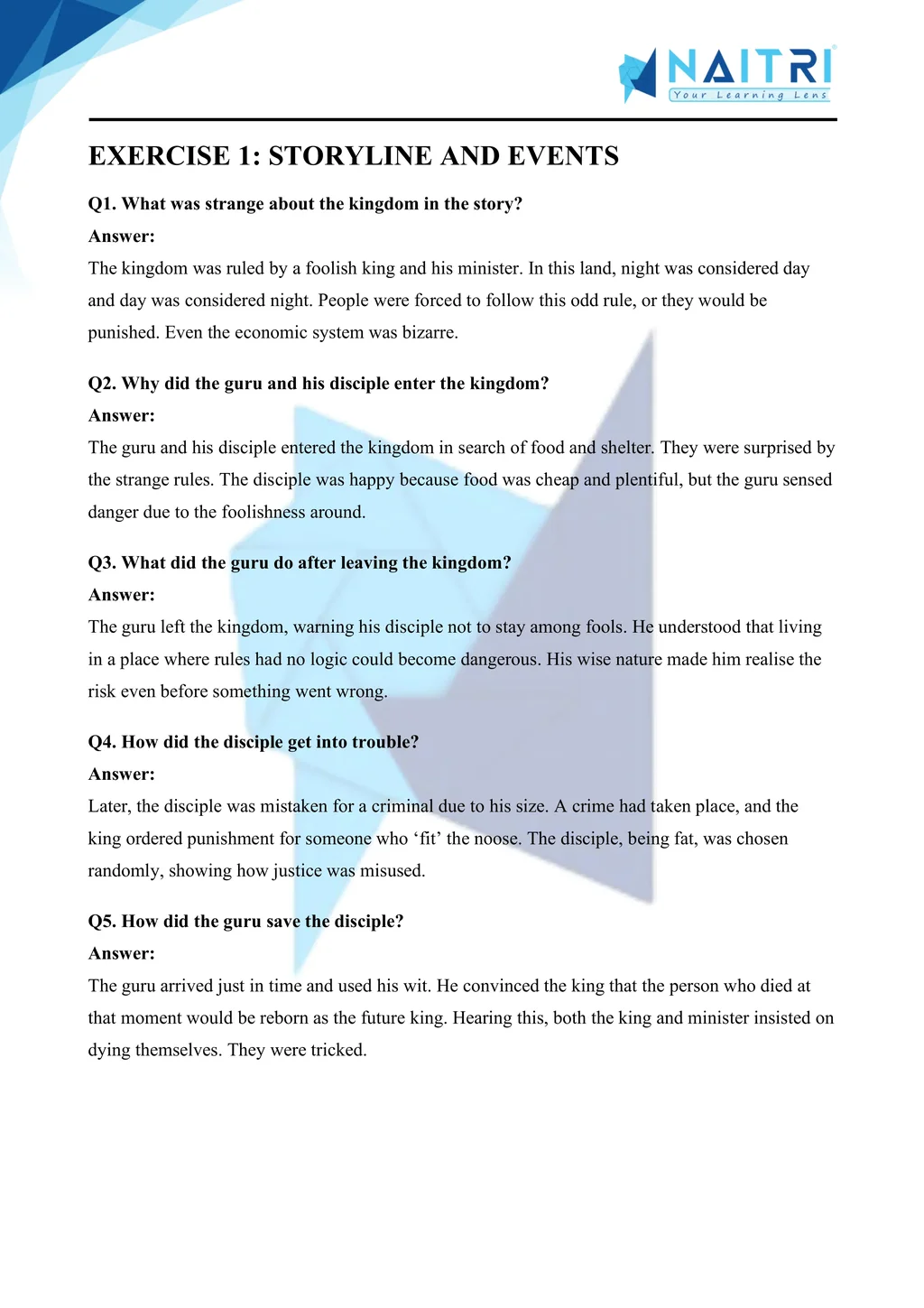
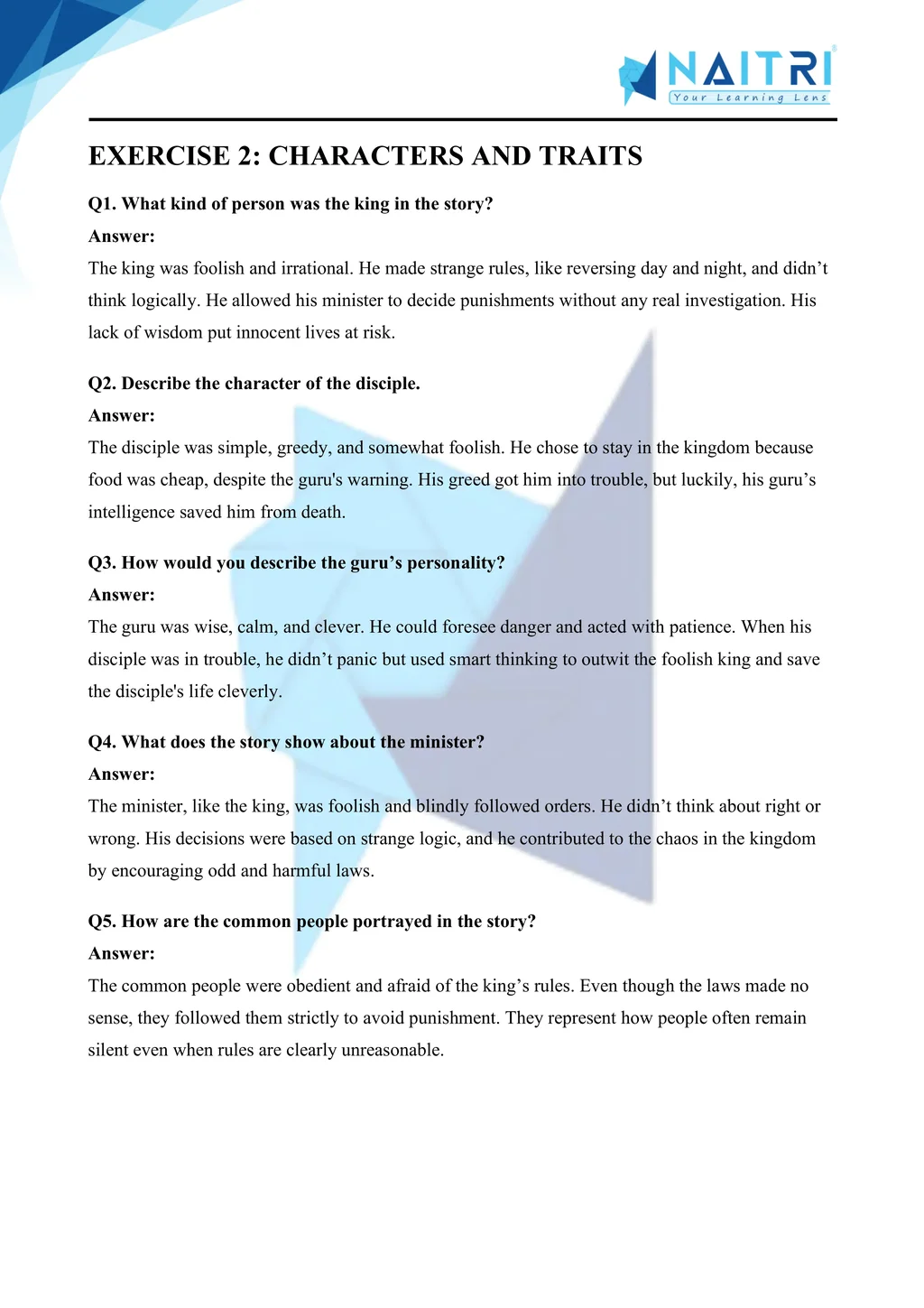
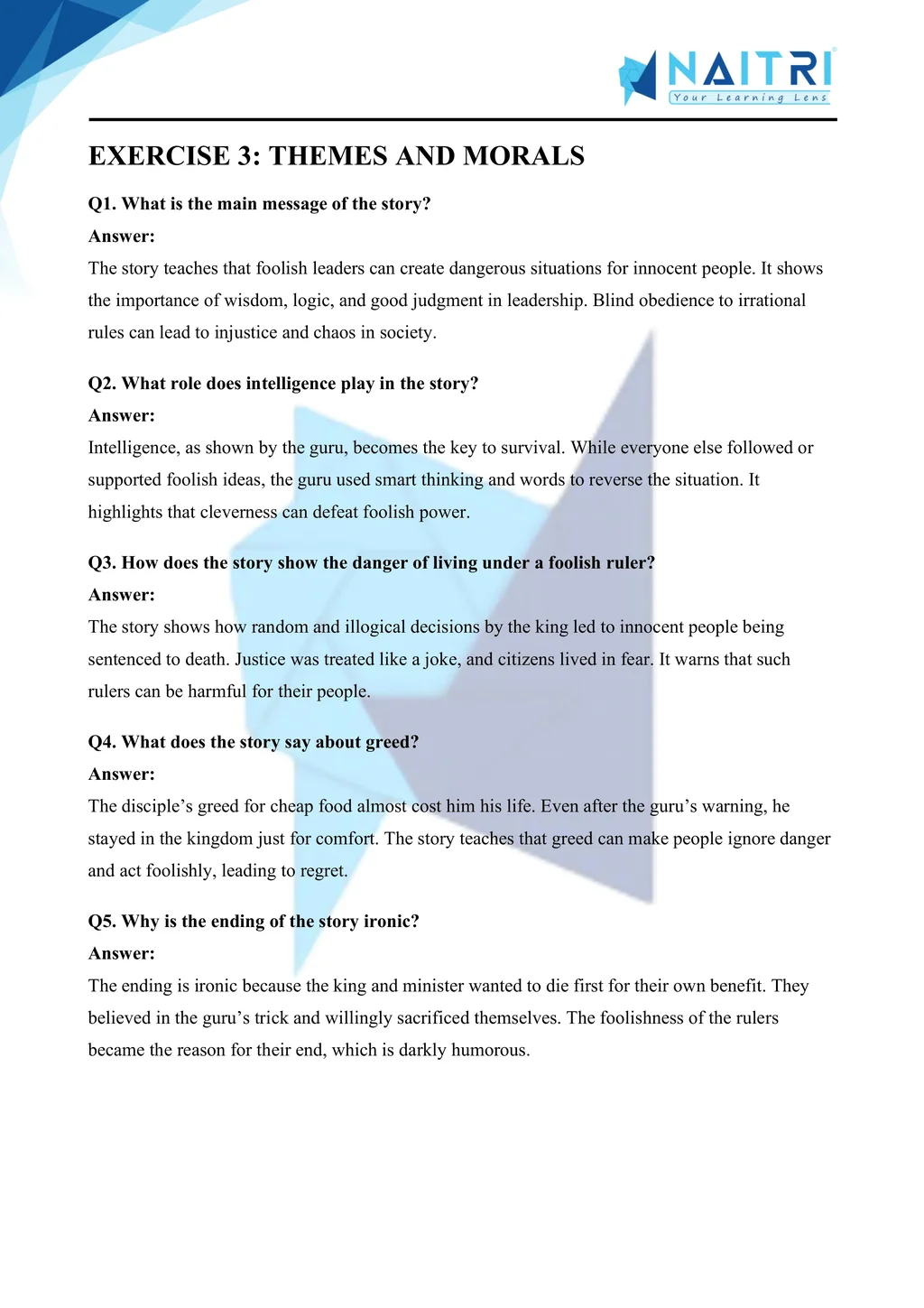
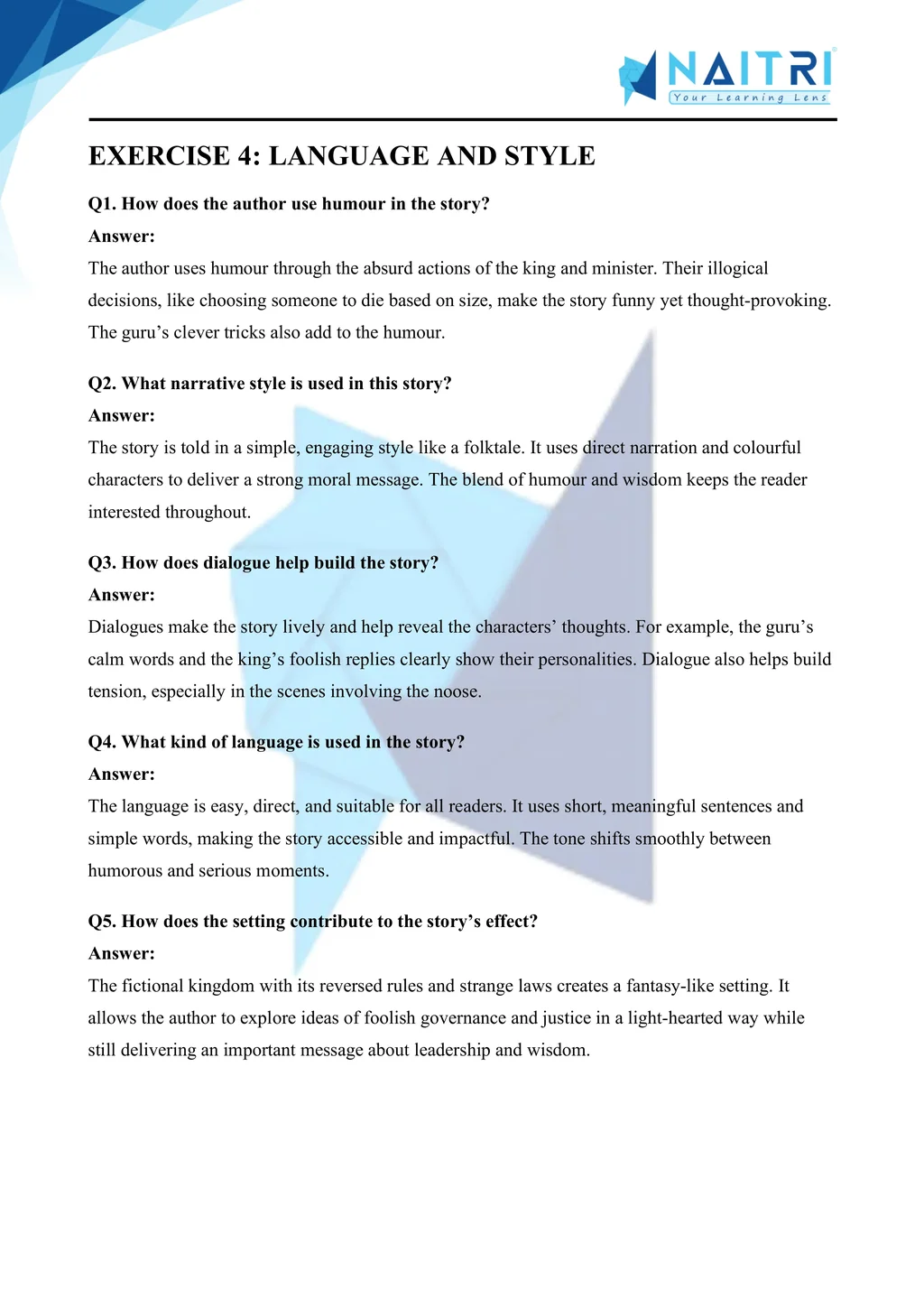
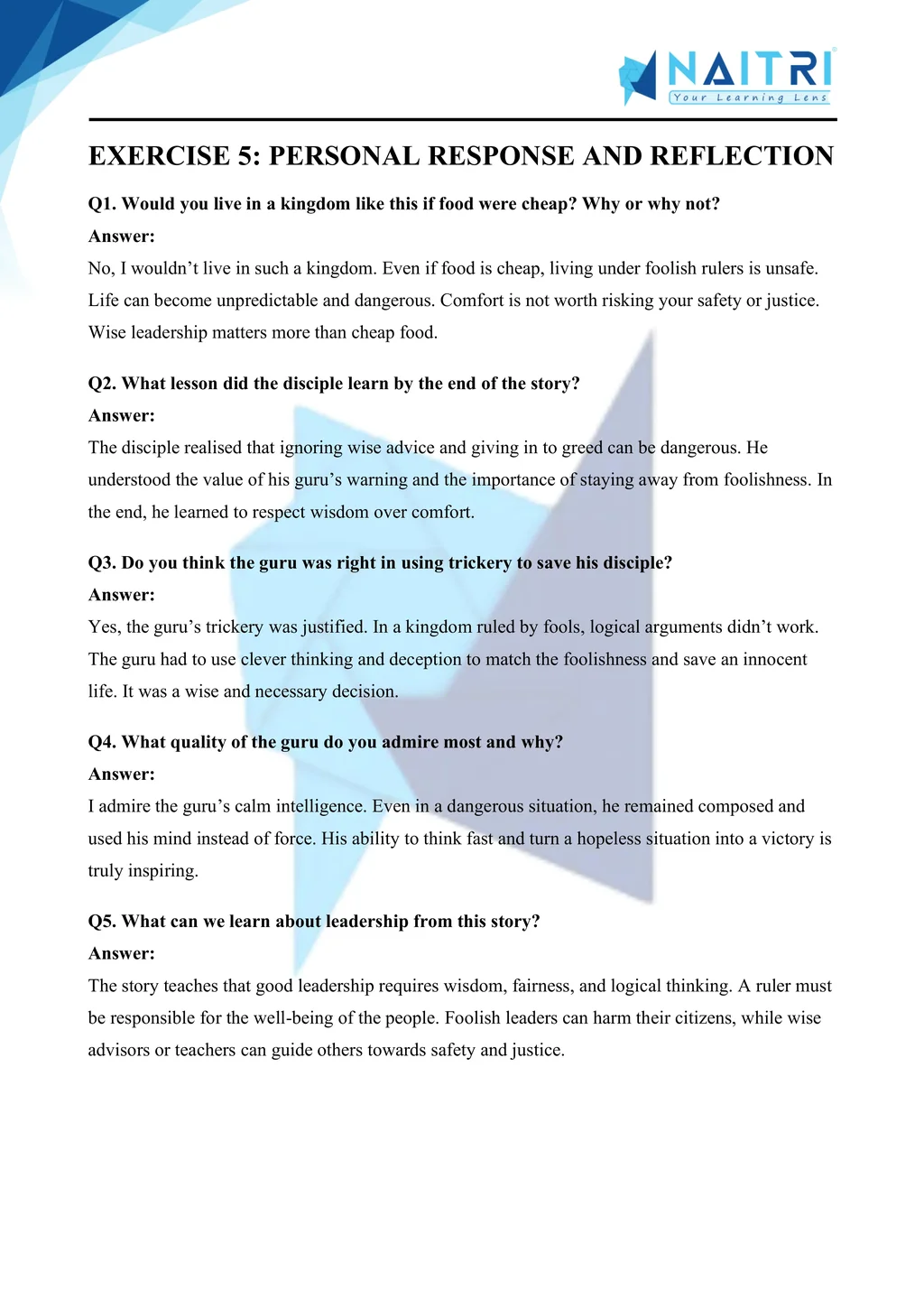
Experience English Like Never Before – With AR!
Understanding In the Kingdom of Fools is now more exciting and immersive! With the NAITRI App, you can explore engaging literature through Augmented Reality (AR). Step into a strange land where logic fails, justice flips, and wisdom saves the day — right in front of you. Our AR-powered lessons make learning interactive, 3D, and fun, helping you retain concepts better and enjoy every topic.

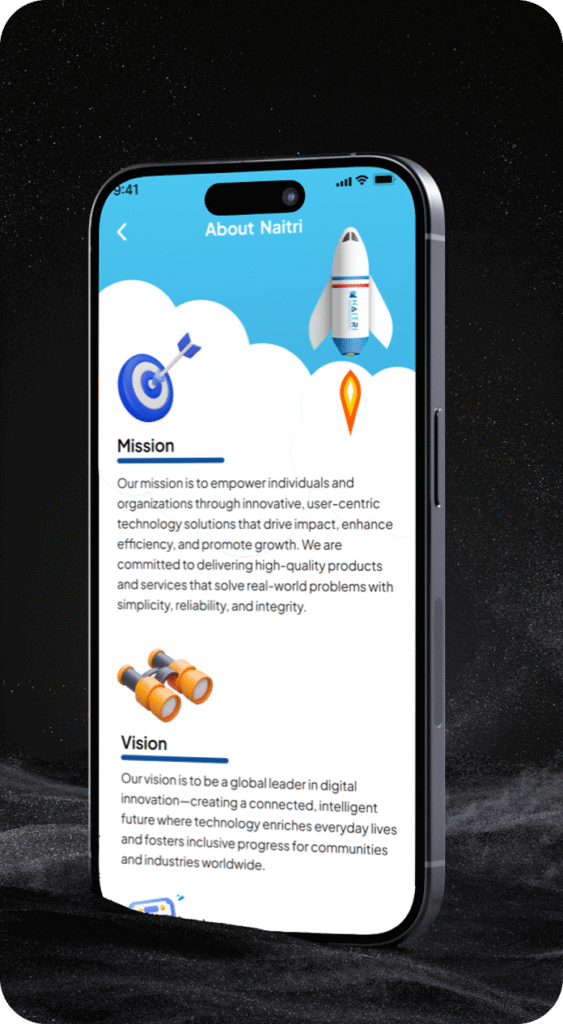

Visualize . Interact . Understand . The future of learning is here
In the Kingdom of Fools – Important Questions with Answers
Why was the kingdom called the ‘Kingdom of Fools’?
Answer: The kingdom was ruled by a foolish king and his minister who made strange rules—like everyone must sleep by day and work at night.What unusual rules existed in the kingdom?
Answer: People had to be active at night and sleep during the day. Everything, including food, was sold at the same price, no matter what.Who were the main characters in the story?
Answer: The main characters are the foolish king, his minister, the guru, and his disciple, all involved in a strange series of events.Why did the guru and disciple visit the kingdom?
Answer: They visited out of curiosity and were surprised to see a place where food was cheap and everyone followed odd rules.What made the disciple stay behind?
Answer: The disciple stayed because of the abundant, cheap food, despite the guru’s warning that foolishness can be dangerous in such places.What crime led to the trial in the story?
Answer: A man’s house collapsed, killing a thief. The owner was blamed, and a series of ridiculous trials began, blaming different people.What does the trial scene show about the king’s nature?
Answer: The king was illogical and rash, blaming random people for the crime and making decisions based on foolish logic, not justice.Why was the disciple chosen for execution?
Answer: The executioner needed someone fit for the stake. The disciple was fat and healthy, making him the perfect candidate for the punishment.How did the guru save the disciple’s life?
Answer: The guru cleverly tricked the king by claiming that the one dying first would go to heaven, making the king want to die first.What lesson did the king learn in the end?
Answer: The king realized his mistake and foolishness, deciding to step down. He and the minister died, and the guru became ruler.What does the story teach about wisdom and foolishness?
Answer: It shows that wisdom and presence of mind can save lives, while foolishness in leadership can be dangerous and disastrous.Why did the guru refuse to stay in the kingdom?
Answer: He sensed danger in a kingdom where absurd rules existed and justice was based on nonsense, not logic or fairness.What role does humor play in the story?
Answer: The story uses satire and humor to highlight the absurdity of blind leadership and the importance of wisdom in governance.Why did the king and minister want to die first?
Answer: They were fooled into believing that the first to die would be reborn as king or minister in a heavenly world.What happens to the kingdom in the end?
Answer: After the death of the king and minister, the guru and disciple ruled and changed all the foolish rules, restoring order.How is the disciple portrayed in the story?
Answer: The disciple is shown as greedy and naïve, valuing food over wisdom, but he later realizes the importance of the guru’s advice.What is the significance of the title?
Answer: It reflects a kingdom ruled by irrational leaders, where logic and law are replaced by foolish thinking.Why is the story considered a fable?
Answer: It teaches a moral lesson using fictional characters and events, much like traditional fables that highlight the difference between wisdom and folly.What can leaders learn from this story?
Answer: Leaders should rule with wisdom, logic, and justice, not with arbitrary and senseless decisions that endanger the people.Why did the guru agree to rule the kingdom?
Answer: He realized that under wise leadership, the people could be saved from irrational laws, so he accepted the responsibility to bring change.What role does justice play in the story?
Answer: Justice is shown as twisted under foolish rulers, but it’s eventually restored when wise people take over.What was the guru’s clever trick?
Answer: The guru reversed the king’s plan by pretending to seek execution, thereby tricking the king and saving the disciple.What does the story say about greed?
Answer: The disciple’s greed for food almost led to his death, showing that greed can cloud judgment and safety.How did the guru teach the disciple a life lesson?
Answer: By saving his life and showing the dangers of greed and foolishness, the guru taught him the value of wisdom and listening.Summarize the moral of the story.
Answer: The story emphasizes that foolish leadership can lead to chaos, but wisdom, clever thinking, and morality can restore order and justice.
In the Kingdom of Fools is a satirical folktale where both the king and his ministers make absurd decisions, turning logic upside down. A series of foolish events leads to an unexpected twist where wisdom finally prevails. The story warns against blind authority and shows the triumph of intelligence over ignorance.
Download Naitri App
Easy, Visual Learning — Right on Your Phone
Learn with Augmented Reality! The Naitri app makes CBSE and MP Board concepts interactive and fun — even in low-resource settings. Watch lessons, complete homework, take tests, and track progress — all in one place. Anytime. Anywhere.
Available on








